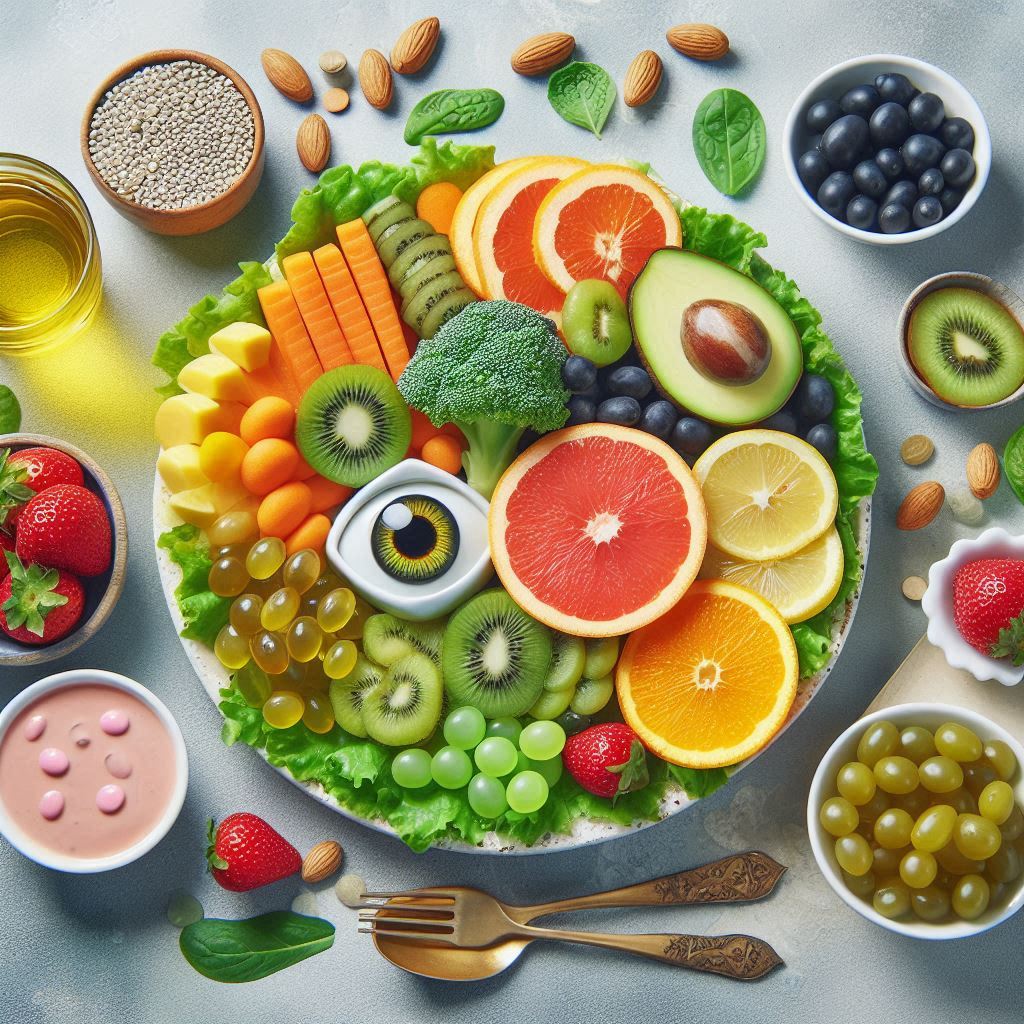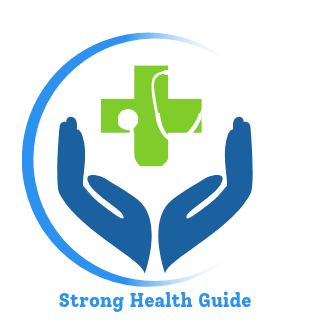Maintaining optimal eyesight is essential for leading a healthy and active life. Whether it’s preventing age-related vision decline or supporting day-to-day eye health, what you eat plays a significant role in ensuring your eyes remain in good condition. Just as you would nourish your body with vitamins and minerals, your eyes also need specific nutrients to stay healthy. In this article, we’ll explore healthy diet tips for eyesight, the benefits of taking multivitamins for eye health, and how to create an ideal diet for eyes that supports vision.

Why Is a Healthy Diet Essential for Eyesight?
Our eyes are constantly exposed to environmental stressors such as digital screens, UV rays, and pollution, all of which can cause damage over time. This is why proper eye care is so important. Alongside lifestyle choices like limiting screen time and protecting your eyes from harmful light, a nutrient-rich diet is one of the best ways to ensure your eyes stay healthy.
Eating a balanced diet rich in vitamins, antioxidants, and minerals can reduce your risk of common eye diseases such as age-related macular degeneration (AMD), cataracts, and dry eye syndrome. A diet optimized for eye health provides the right nutrients your eyes need to function efficiently, promoting sharp vision and protecting your eyes from oxidative stress.
Healthy Diet Tips for Eyesight
To promote healthy vision and reduce the risk of developing eye conditions, it’s crucial to incorporate specific nutrients into your meals. Below are some healthy diet tips for eyesight that can help you maintain good vision for years to come:
- Eat Foods High in Vitamin A
Vitamin A plays a key role in maintaining the health of the retina, the light-sensitive tissue located at the back of the eye. It also helps prevent night blindness and supports overall eye function. Beta-carotene, which the body converts into Vitamin A, is found in foods like carrots, sweet potatoes, spinach, and kale. Including these vegetables in your diet helps ensure your eyes have the Vitamin A they need to function optimally. - Incorporate Omega-3 Fatty Acids
Omega-3 fatty acids are important for maintaining eye health, particularly in preventing dry eye syndrome and reducing the risk of macular degeneration. These healthy fats can be found in fatty fish such as salmon, mackerel, and sardines. If you follow a plant-based diet, you can also obtain Omega-3s from flaxseeds, chia seeds, and walnuts. Omega-3s help support the structure of the eye’s cell membranes and contribute to tear production, keeping your eyes well-lubricated. - Consume Antioxidant-Rich Foods
Antioxidants such as Vitamins C and E play a vital role in protecting your eyes from free radical damage, which can lead to conditions like cataracts and macular degeneration. Foods rich in Vitamin C include citrus fruits (oranges, lemons, and grapefruits), strawberries, and bell peppers. Vitamin E, which helps protect eye cells from oxidative stress, is abundant in nuts, seeds, and leafy green vegetables. - Prioritize Foods Containing Lutein and Zeaxanthin
Lutein and zeaxanthin are carotenoids that act as natural filters for harmful blue light, protecting the retina from potential damage. These compounds are highly concentrated in leafy greens like spinach, kale, and collard greens, as well as in egg yolks and corn. Studies suggest that lutein and zeaxanthin may reduce the risk of chronic eye diseases like AMD and cataracts. - Include Zinc in Your Diet
Zinc is crucial for transporting Vitamin A from the liver to the retina, where it is used to produce melanin, a protective pigment in the eyes. Foods high in zinc, such as oysters, beef, beans, and pumpkin seeds, help maintain healthy vision and protect against night blindness and other age-related eye conditions. Zinc is also important for maintaining the structural integrity of the retina. - Stay Hydrated
Proper hydration is often overlooked, but it’s essential for eye health. Dehydration can lead to dry eyes, causing irritation and blurred vision. Drinking plenty of water throughout the day helps keep your eyes moist and supports the production of tears, which is vital for maintaining healthy, comfortable eyes.
Multivitamins for Eye Health: Are They Worth It?
While a healthy diet should ideally provide all the nutrients your eyes need, some people may benefit from taking multivitamins for eye health to ensure they’re meeting their nutritional requirements. This is especially important if your diet lacks specific vitamins and minerals that support eye health. Multivitamins designed for eye health typically contain a combination of key nutrients that have been shown to support vision and protect against age-related eye conditions.
Here are some essential nutrients commonly found in multivitamins for eye health:
- Vitamin A – Supports overall eye function and helps prevent night blindness.
- Vitamin C – A powerful antioxidant that reduces the risk of cataracts and helps slow the progression of macular degeneration.
- Vitamin E – Protects cells in the eyes from oxidative damage and reduces the risk of cataracts and AMD.
- Lutein and Zeaxanthin – Protect the retina from harmful blue light and lower the risk of macular degeneration.
- Zinc – Promotes the transport of Vitamin A to the retina and helps maintain healthy vision, especially in low-light conditions.
Although multivitamins can help fill in nutritional gaps, they should not be relied upon as a replacement for a well-balanced diet. Always consult your healthcare provider before starting any multivitamin regimen, especially if you have existing health conditions or are taking medications.
Designing a Balanced Diet for Eyes: What to Eat
Creating a balanced diet for eyes is simple when you focus on incorporating a variety of nutrient-dense foods that support good vision. Below is a sample meal plan that provides the essential vitamins and minerals your eyes need:
- Breakfast
Start your day with a smoothie made from spinach, kale, and mixed berries, blended with almond milk for an added boost of Vitamin E. Add a tablespoon of chia seeds or flaxseeds for Omega-3 fatty acids. You can also include a boiled egg for a dose of lutein and zeaxanthin. - Lunch
Opt for a salad with a base of leafy greens like spinach, arugula, and kale, topped with grilled salmon or tuna for Omega-3s. Add colorful vegetables like carrots, tomatoes, and bell peppers for Vitamins A and C. Finish it off with a light drizzle of olive oil for healthy fats and Vitamin E. - Snack
Snack on a handful of almonds, walnuts, or sunflower seeds, all of which are rich in Vitamin E. Pair this with a citrus fruit like an orange or a handful of berries to boost your intake of Vitamin C. - Dinner
For dinner, enjoy a piece of grilled chicken or turkey with a side of steamed broccoli or Brussels sprouts. Both are rich in antioxidants that support eye health. Sweet potatoes or carrots can serve as a Vitamin A-rich side dish to promote healthy vision. - Hydration
Don’t forget to drink plenty of water throughout the day. Keeping hydrated is important for maintaining moisture in your eyes, preventing dryness, and ensuring optimal eye function.
Conclusion
Following these healthy diet tips for eyesight can significantly impact the health of your eyes over time. By including a wide variety of nutrient-rich foods and possibly supplementing with multivitamins for eye health, you can protect your vision and reduce the risk of developing common eye conditions as you age. A balanced diet for eyes, rich in vitamins A, C, E, omega-3 fatty acids, and antioxidants, is key to maintaining clear and sharp eyesight throughout your life.
4o
